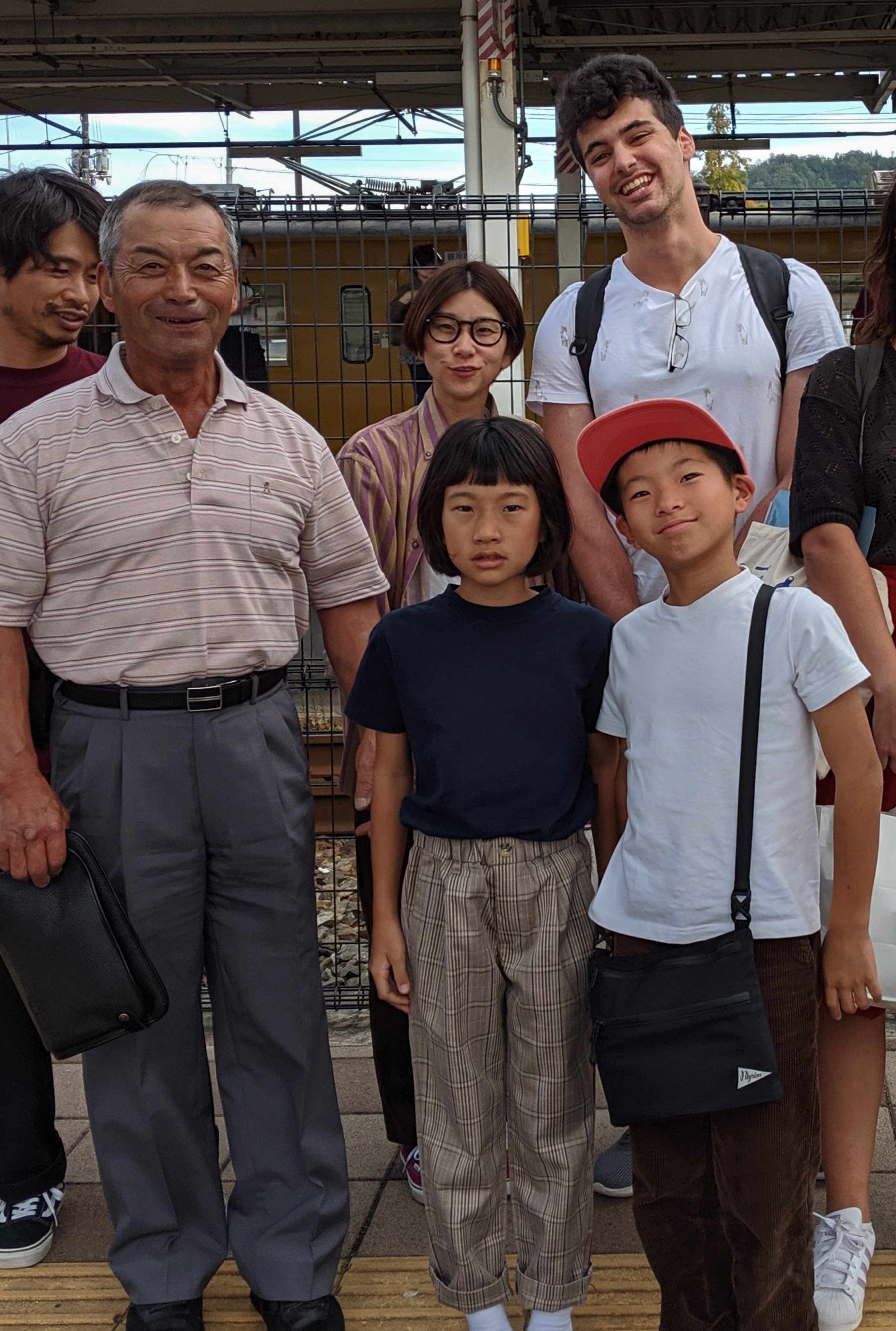Class: 2020
House: Cabot
Concentration: Theatre, Dance, and Media
Hometown: Curitiba, Brazil
Favorite Japanese Food: One-hundred-yen dango from the local convenience store
Study Abroad Program: Kyoto Consortium for Japanese Studies (KCJS), Fall 2019
What made you interested in Japan? When I was younger, I had never been terribly motivated to visit a particular city, country, or even to go to a certain college. Japan is the only exception. While I was still in primary school, my interest started with aesthetics and architecture, then progressed to music, films, and media. But, it wasn't until much later than I came to realize that many of the things I was naturally drawn to were, in fact, Japanese. It might be because there are strong connections between Brazil and Japan, but for whatever the reason, I had always felt a strong desire to come here. It's probably not a coincidence that the first book I ever read was on Japanese history.
What's it like living in Kyoto? I'm currently participating in the Kyoto Consortium for Japanese Studies (KCJS), taking intensive language courses as well as courses on religion and anthropology. I arrived in August and I'll be here until mid-December. This place is incredible. Compared to any place I've lived, Kyoto is definitely the most livable. That includes Los Angeles, Boston, and even my home city of Curitiba in Brazil. I think the organization of urban space reflects and affects people's lives. My overarching impression of Kyoto is a place where people have very organized lives.
What research are you pursuing in Japan? I'm investigating how performance art can contribute to the C.N.D., the Campaign for Nuclear Disarmament. Peace is the main theme of my research and Japan is the crib of a field called "Peace Studies." It's not very developed outside the country, but if you go to a library here, you can find an entire section dedicated to the topic of heiwa gaku (平和学) or "Peace Studies." In addition to accessing standard theoretical materials, it's possible to visit places like Hiroshima and Nagasaki, to meet the victims of the atomic bombings, peace activists, and to find answers to the questions that inspire peace studies. In Nagasaki, I had the opportunity to meet people currently active in the C.N.D. movement. In Hiroshima, I spoke to the coordinator of the memorial to victims of the atomic bomb. One of the key challenges is that the current generation is less concerned about peace since they grew up at a time when war seems so remote. And now we have new leaders coming to power who are unwilling to maintain or enforce disarmament treaties. My aim is to discover ways my art can validate the peace movement and advance its goals. Being able to do that here in Japan is very fulfilling.
What do you say to others considering overseas study? Do it! I spent a lot of time considering whether or not to study abroad. It wasn't wasted time, but in hindsight, it was unnecessary. When I started college, the dean told us that we need to get much more than a diploma at Harvard. Now I know that study abroad basically guarantees that I achieve that worthy goal. It's unbelievable being here. For someone to simply go to college from their hometown enriches their life a lot. But then when you go to a third place that happens to be overseas, how unique does that make your college experience? It's amazing. When you're overseas, you tend to do the things you always promised yourself you'd do. I've travelled up and down this country, visiting over 10 cities. I've come to know Japan much better than I know Boston, and I've lived in Boston for three years! And best of all, doing all this travel and exploration is not merely okay, it's precisely the reason why I'm here. I don't have to feel guilty about any of it. It's a liberating feeling.
